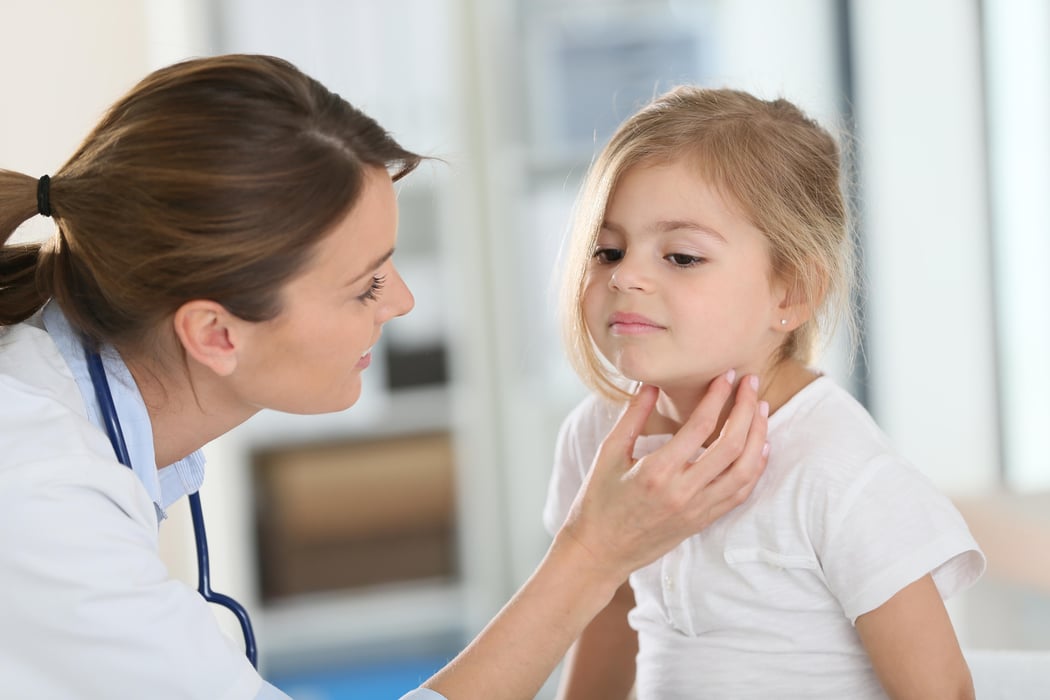Overuse of Antibiotics in Kids Adds Millions to U.S. Health Care Costs

TUESDAY, May 31, 2022 (HealthDay News) -- Inappropriately prescribed antibiotics to children pushed up U.S. health care costs by at least $74 million in just one year, new research shows.
Antibiotics can make a difference in bacterial infections, but not viral illnesses.
Prescribing them needlessly or choosing the wrong antibiotic for a particular type of infection also adds to the threat of drug-resistant superbugs, the study noted.
"Inappropriate prescribing of antibiotics is unfortunately very common and leads to adverse drug events and millions of dollars in avoidable health-care costs," said lead author Anne Mobley Butler, an assistant professor of medicine at Washington University School of Medicine in St. Louis.
"Sometimes parents think that the worst that could happen is that the antibiotic just won't help their child," Butler said in a university news release. "But antibiotics are not harmless -- they can cause adverse drug events. Clinicians needs to ensure that antibiotics are only used in the way that is most likely to benefit the patient."
Working with the Pew Charitable Trusts, Butler and her colleagues analyzed private health insurance claims for children ages 6 months to 17 years who were diagnosed with any of eight common infections in 2017.
Three of the infections were bacterial: ear infections with pus, sore throats and sinus infections. Five were viral: ear infections without pus, bronchitis, bronchiolitis, influenza and colds.
The researchers identified 2.8 million children who were seen for one or more of these eight infections in clinics, emergency rooms, urgent care centers and doctors' offices between April 1, 2016 and Sept. 30, 2018.
Kids who were prescribed unneeded antibiotics or ones that were not right for their type of infection were up eight times more likely to develop complications such as diarrhea and skin rashes than kids treated according to standard medical guidelines.
A previous study suggested that about 29% of antibiotic prescriptions for non-hospitalized children were inappropriate.
Kids who received a non-recommended antibiotic for bacterial infections had up to eight times the risk of developing the potentially life-threatening intestinal infection Clostridioides difficile (C. diff). They were also at higher risk for diarrhea not caused by C. diff, nausea, vomiting and abdominal pain, as well as serious allergic reactions such as anaphylaxis.
Children who unnecessarily received antibiotics for some viral infections had a higher risk of developing skin rashes or unspecified allergies, the study also found.
"Taking antibiotics when they're not needed, or taking the wrong antibiotic when one is needed, accelerates the threat of dangerous superbugs, and has serious consequences for individual patients," said study co-author Dr. David Hyun, who directs the Pew Charitable Trusts' antibiotic resistance project.
"We hope this research will serve as a road map to help health systems, insurers and other health care organizations as they work to strengthen efforts to improve antibiotic prescribing, protect children's health and save money," Hyun said in the release.
For the year studied, inappropriate antibiotic selection for bacterial ear infections cost families and insurance companies an average $56 per case, or about $25.3 million in excess costs nationally, according to the study. But that figure was just for children with private insurance. The total for all children is likely much larger, according to the study.
Inappropriately treated sore throats cost $21.3 million; sinus infections, $7.1 million; influenza, $1.6 million; and common colds cost $19.1 million nationwide for privately insured kids.
Unnecessary antibiotic prescriptions for viral bronchitis or bronchiolitis did not lead to additional medical complications or excess costs.
Surprisingly, one exception was inappropriate prescriptions for viral ear infections, which saved $15.4 million nationally. The researchers suggested this could be a diagnostic coding error where bacterial ear infections were wrongly marked as viral, and not an actual savings.
"This study continues to show that we have to do a better job of making sure antibiotics are used appropriately in all health care settings," said senior author Dr. Jason Newland, a professor of pediatrics at WUSTL. "Our failure to do so has real costs, both to the health of children and to our collective wallet."
The findings were published May 26 in JAMA Network Open.
More information
The American Academy of Pediatrics answers questions on antibiotics and children.
SOURCE: Washington University School of Medicine in St. Louis, news release, May 26, 2022
Related Posts
Data Show Big Drop in Number of Americans in Medical Debt
TUESDAY, Feb. 14, 2023 (HealthDay News) -- Americans have less medical debt now...
Pocos estadounidenses comprenden el impacto del alcohol en el riesgo de cáncer, según una encuesta
VIERNES, 2 de diciembre de 2022 (HealthDay News) -- El alcohol aumenta el riesgo...
‘Boarding’ Patients for Days, Weeks in Crowded ERs Is Common Now
WEDNESDAY, Oct. 4, 2023 (HealthDay News) -- When Hannah, a California marketing...
FDA Approves Both Pfizer, Moderna Boosters for All Adults
FRIDAY, Nov. 19, 2021 (HealthDay News) -- The U.S. Food and Drug Administration...
